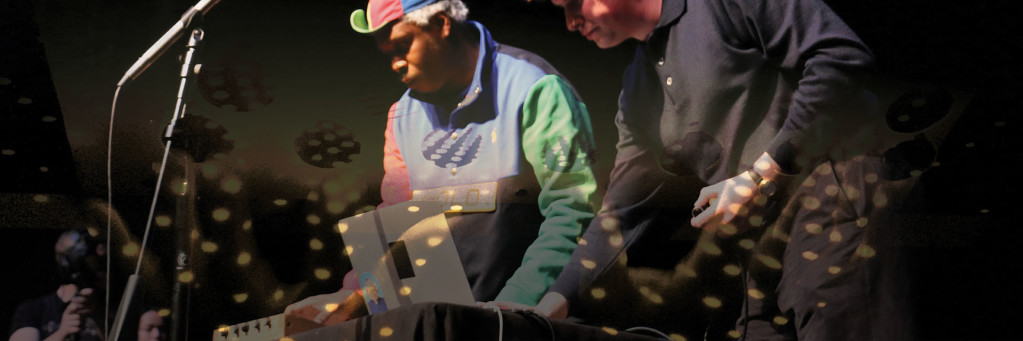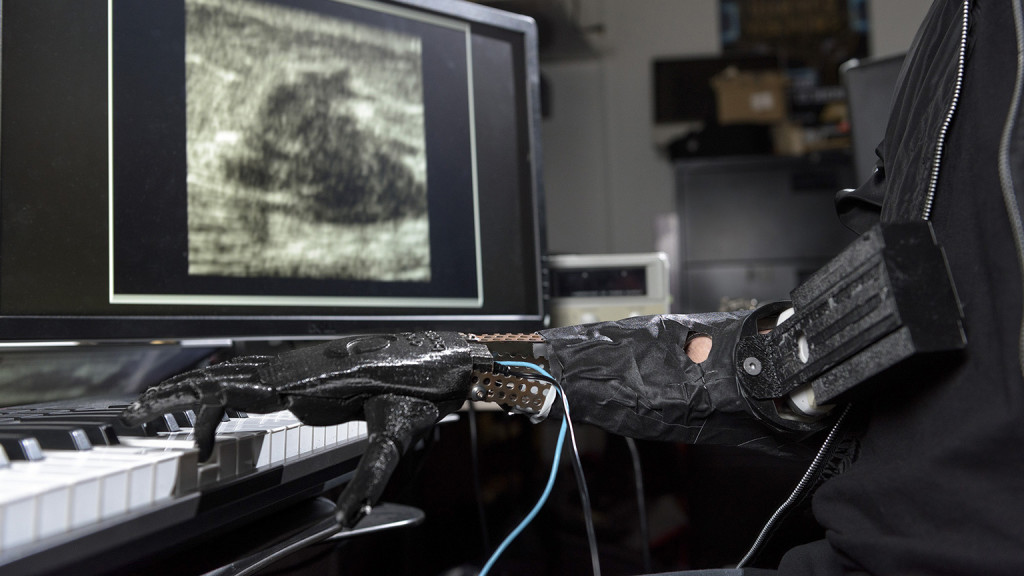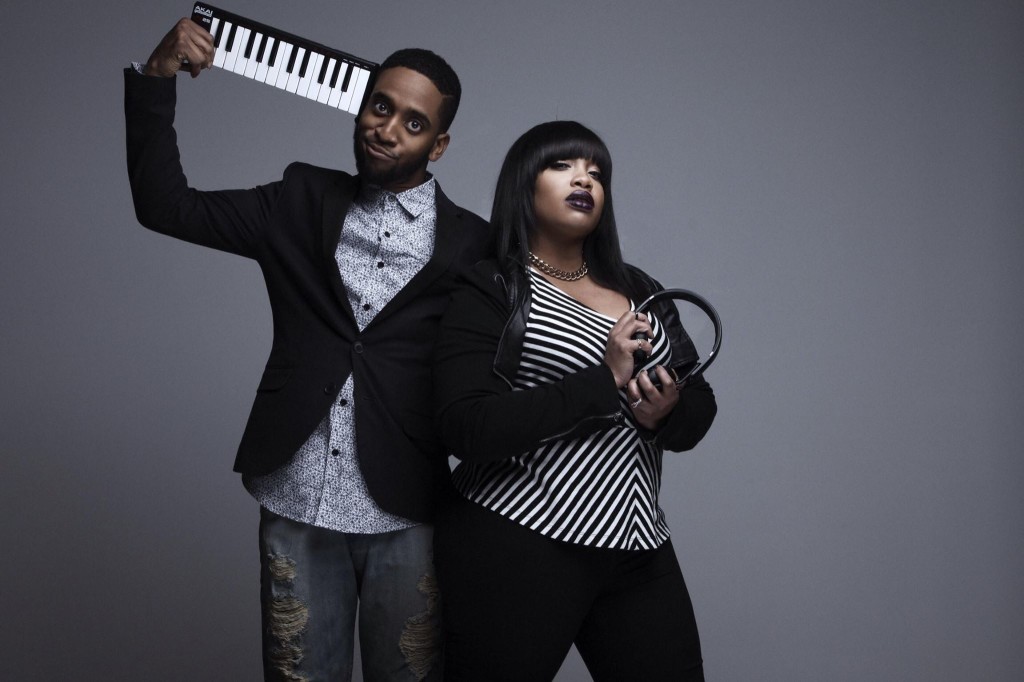For the first time ever, the prize that celebrates the future of musical instrument tech is fully online and global. Here’s a look at why that matters – and yeah, if you’re thinking of applying, you just got an extension to this Thursday.
Light sabers and robotics … accessibility and expression … Grammy winners and cyborgs!
The Guthman Competition has quickly established itself as the premier award for forward-thinking musical instrument inventions. But it began with a different aim altogether, and 2020/2021 takes it into new territory — territory you might be a part of yourself.
I gave an overview of what the Guthman project is about and some of what has emerged from the competition in years past. The 2021 year is going online to cope with the pandemic and reach beyond the usual geographies, and CDM is involved in hosting for the worldwide audience of the Internet. That’s you!
If you haven’t yet applied and think you’ve got The Right Stuff, don’t be shy – because Georgia Tech extended the deadline to Thursday, 8th of October. (My favorite kind of deadline is an extended deadline, so this has my official endorsement.)
But let’s learn more about what’s going on with this competition. I’m a long, long way from Atlanta, Georgia now – and maybe you’re even further. So I asked Jason Freeman from Georgia Tech to tell us more.

Peter: It’s fascinating to me that this competition has its roots in namesakes representing both piano/concert music and electrical engineering, and then goes from a piano competition to being this instrument competition. How did that transformation happen?
Jason: Georgia Tech’s School of Music began a radical transformation in the 2000s, expanding from a focus primarily on music performance ensembles to offer degree programs in music technology and to launch a research center in music technology. My predecessor as chair of the School, Frank Clark, wanted the competition to align with the school’s expanded mission and to help spread the word about Georgia Tech’s new focus on music technology.
We were fortunate that Richard and Margaret Guthman also saw the benefit of this shift for the competition. They took a leap of faith to let us reimagine it as a musical instrument competition. Once we all saw the success of the competition at capturing the imagination of competitors, judges, Georgia Tech students and faculty, and curious tinkerers from Atlanta and around the world, we never looked back.
Right now there are pressing questions about the fact that musicology has been so centered on western European concert practice and that has lacked a balanced representation of the world’s diversity. Is instrument design and engineering something that could now attract a greater range of voices? Is that the case at Georgia Tech, for that matter, or in competition past (or future?)
At Georgia Tech, our focus on music technology has always helped us take a broader view of music in our degree programs and in our research. For example, we probably have as many graduate students in music technology in our program who are specialists in Indian classical music as we do who are specialists in western classical music. And the research that comes from our faculty and students often focuses more on popular music genres (both western and non-western) than on western classical music. Western classical music is still important to the School: we have two orchestras (among other ensembles) and teach western-focused music theory to our undergraduates. Even in those contexts, though, we are constantly working to rethink our curriculum and our perspectives.
Instrument design and engineering certainly attract a wide range of voices. The 2019 second-place Guthman winner, GeoShred, has found its biggest user base among musicians in India. The 2014 first-place winner, Adjustable Microtonal Guitar, was designed for the performance of microtonal Turkish music. And our 2020 first-place winner, Electrospit, was a reimagination of the talkbox – an instrument that comes from popular music rather than classical music tradition.
That said, there has long been an over-representation in the Guthman Competition from instrument makers in North America and Europe. One long-running challenge has been the travel of our finalists to Atlanta to participate — an expense we have not typically been able to support. Since the virtual format of this year’s competition eliminates this barrier, we are hopeful that our applicant pool will be even more diverse than past years, especially with respect to geography.

What sorts of instruments apply to Guthman? Any particularly strange or memorable entries?
We get a broad spectrum of instruments, ranging from DIY projects to large-scale research projects to new products from startup companies. It’s very hard to classify these projects into different categories, because each one is so unique, but some trends do emerge: extensions and re-imaginations of acoustic instruments; controllers that can be used in a variety of ways in tandem with synthesizers; robotic musicians and automata; instruments focused on music education; and conceptually-driven work that raises more fundamental questions about how we make music.
Here are a few of my favorites (though several of these defy such easy categorization):
MEMO/MOVE (2nd place, 2020). Video: https://vimeo.com/324214365. At first glance, this instrument seems simplistic, with just a few buttons and sliders, but its potential gradually unfolds as you see how its motorized faders control live loop manipulation. At our Guthman concert, we brought in Grammy-winning Atlanta duo Milk+Sizz (https://www.sndbrd.com/) to do a live performance with Krysztof Cybulski, the instrument’s creator. It was an incredible mash-up of experimental sound art and beat-driven live electronics.

The Optron (Audience Favorite, 2017). Project site: http://www.myoptron.com/. The instrument looks like a giant LED light tube, or maybe a light saber, but in the hands of creator Chet Udell, it becomes an expressive gestural multimedia instrument. Since 2017, Chet has done some fascinating collaborative work with CymaSpace to make the instrument accessible to deaf musicians (http://www.myoptron.com/cyma).
Cantor Digitalis (1st place, 2015). Project site: https://cantordigitalis.limsi.fr/. This system combined expressive performance on a standard commercial graphics tablet with an impressive physical model synthesizer of a singing voice. When the group performed together as a quartet, the musicality of the ensemble blew me away.
BeatJazz (2nd place, 2013). At TED: https://www.ted.com/talks/onyx_ashanti_this_is_beatjazz?language=en. Onyx Ashanti’s instrument fascinates me because of the creative process he’s gone through to create it. Every sensor, every mapping, every new gesture is the result of a continuous process of exploration, discovery, and refinement. The result is something perfectly suited to Onyx’s unique performance aesthetic, and it’s incredibly captivating to watch him in action.
Ed. Yep. Onyx has evolved this instrument a … whole lot … since this era, too. He looks so human in this video; he’s way more cyborg now! More on that soon! Got to check in with him virtually in Detroit soon – greetings, Maestro Onyx.
How do you go about judging entries? Does that change from year to year?
A committee of faculty from the Georgia Tech School of Music serves as the preliminary judges for the competition, narrowing down the applicant pool to a set of finalists who move forward to the next round. The committee reviews and rates each application and then meet to discuss each submission in detail and make final recommendations.
From that pool of finalists, winners are selected by a panel of expert judges. The judges change each year, but we generally try to get a mix of academic, artistic, and industry perspectives on the panel. They’re asked to evaluate each instrument in terms of its engineering, design, and musicality, as well as its current or potential impact. These categories are of course quite subjective, and our judges spend hours deliberating. They always say the decisions are quite hard because all of the instruments are so impressive, and they are also all quite different from each other.
An additional prize is awarded based on popular vote by the audience. In most years, the live audience that attends our celebratory concert of the finalists gets to vote at the end of the show. This year, we’re moving the voting process online and giving people more ways to engage with the incredible work of our finalists.
Okay, so someone reading this article is thinking about applying with [XX]. Apart from “well, hurry up the deadline is on Thursday, any advice about whether they should go ahead and apply?
We’ve just extended the deadline until October 8th to give people one extra week to put applications together. I’d encourage anyone considering applying to go ahead and submit. There’s no entry fee and the application process is quite simple: just a short video, some basic info, and a few brief statements with information about yourself and your instrument. And if you’re not selected as a finalist this year, you can always apply again in a future year. (We always enjoy seeing how instruments develop and evolve over the years!)
Ed. Yeah, I’ll echo that, too based on my own selection experiences here and there – the most common misconception about entering these things is “I didn’t get it one year, I shouldn’t reapply.” You totally should.
Hey, what time on Thursday?
11:59 pm anywhere in the world on October 8th works just fine!
What are your hopes for the competition this year now that it is online? Any chance to do something new?
In past years, we’ve had an international reach in terms of applicants, finalists, and judges, but a local focus in Atlanta with a weekend of events celebrating our finalists and announcing our winners. This year, we really want to reach beyond the Georgia Tech campus and the city of Atlanta in sharing the incredible work of the finalists and winners in the competition. We want to share our excitement with everyone from industry experts to independent artists to students just learning about the field of music technology and new instrument design.
To help accomplish this goal, we’ll have some new activities specifically designed to engage our audiences online, like learning activities and lesson plans for teachers and students, panel discussions, an online gallery where anyone can watch videos of our finalists and vote to help pick one of the winners, and special videos and events celebrating our winners and their work.
Thanks, Jason! Apply if you’re up for it, folks. And stay tuned here for more glimpses on what’s happening in the musical instruments world, and ways to use this event to discover and learn more (and try some stuff yourself)!
Submit your instrument: https://guthman.gatech.edu/submissions